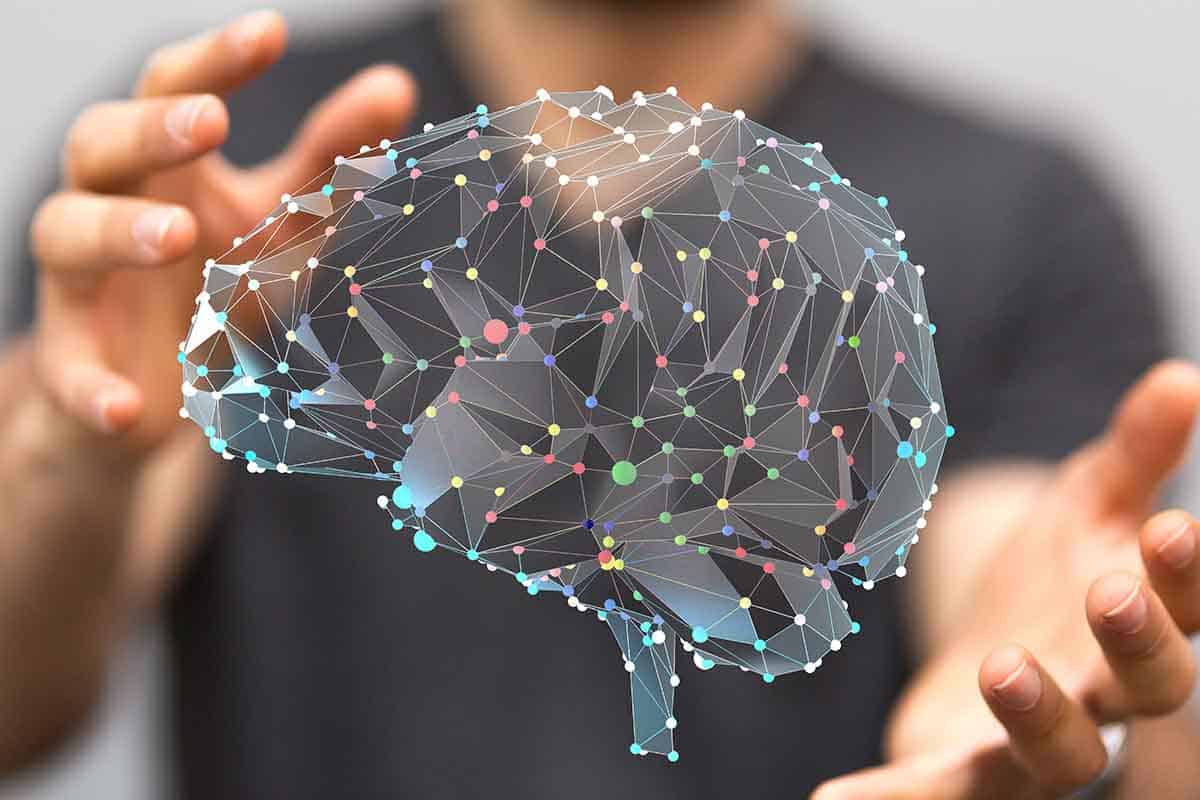March is National Brain Injury Awareness Month, which is why we want to take the opportunity to explore the complex relationship between brain injuries, neurological disorders, and substance abuse. Recognizing the multifaceted interactions between all of these is pivotal for developing effective treatment strategies, preventive measures, and a deeper comprehension of both substance use disorders (SUDs), neurological conditions, and brain health in general.
How Substance Use Affects Brain Chemistry
At its core, human brain chemistry involves a web of neurotransmitters and receptors that guide our every thought, emotion, and action. When this balance is disrupted by substance use, it affects everything from cognitive functions to emotions, and even overall physical health.
This interplay isn’t just a one-way street—pre-existing variations in brain chemistry can predispose individuals to substance use and related disorders, and traumatic brain injuries also have the potential to disturb the brain’s balance and escalate the risk of substance abuse.
Neurotransmitters and Their Roles
The brain communicates through a network of neurons that transmit signals using chemical messengers known as neurotransmitters. These neurotransmitters regulate mood, behavior, and cognitive functions. Substance use can disrupt this communication system, leading to both short-term and long-term changes in brain function.
Dopamine and the reward system. Dopamine is often called the “feel-good” neurotransmitter because of its role in pleasure and motivation. Drugs like cocaine and methamphetamine cause a massive increase in dopamine, leading to the intense high and addictive properties of these substances.
Serotonin and mood regulation. Serotonin helps regulate mood, sleep, and appetite. Substances like MDMA (ecstasy) and certain hallucinogens can cause a flood of serotonin, resulting in mood lifts but also potential for mood disorders after prolonged use.
GABA and inhibition. GABA acts as a brake on neuron activity, inducing relaxation and reducing stress. Alcohol and benzodiazepines enhance GABA’s effect, leading to sedation but also increasing the risk of dependence.
Glutamate and excitation. Glutamate is involved in learning and memory and is the primary excitatory neurotransmitter. Substances that affect glutamate signaling, like PCP (phencyclidine), can cause cognitive impairment and psychosis.
Potential Long-Term Changes in Brain Chemistry
Chronic substance abuse can seriously alter the way the brain works, and it can even change its structure. This isn’t just a temporary hiccup—these are deep-rooted changes that aren’t easy to shake off, including things like:
- Depletion of neurotransmitters. When substances constantly disrupt the regulation of these messengers, the brain might stop making enough of them, leading to feelings like sadness, emptiness, or lack of joy in things we used to love.
- Changes in receptor density. Our brain cells have receptors where neurotransmitters send their messages, but over time, these spots can start disappearing or changing because of drug use. This can mess with how we feel pleasure, handle stress, or even make decisions.
- Brain structure changes. This is about the actual physical changes in the brain. Certain areas might shrink, or the connections between different parts of the brain might weaken. This can affect our ability to think clearly, control our impulses, or remember things.
All these changes can lead to serious problems with how we think and feel, long after someone has stopped using substances. It can make it tough to feel happy or think straight, and it’s why getting over substance use typically requires comprehensive treatment and lots of support.
Brain Injuries and Substance Use
March marks National Brain Injury Awareness Month, dedicated to raising public awareness about the impacts of traumatic brain injuries (TBIs) and their intricate connection with substance use.
How Brain Injuries Can Initiate or Worsen Substance Abuse
Brain injuries, particularly traumatic brain injuries (TBIs), can profoundly alter an individual’s life, often leading to physical pain, emotional turmoil, and cognitive disruptions. These challenges can sometimes push individuals toward substance use as a means of coping.
The relationship between TBIs, substance abuse and brain health is multifaceted, with substance use potentially initiating or exacerbating issues related to brain injuries in several ways:
Coping Mechanism for Pain and Emotional Distress
Individuals suffering from TBIs may experience significant physical pain, alongside emotional disturbances such as depression, anxiety, or PTSD. In an attempt to self-medicate these symptoms, some turn to substances like alcohol or prescription drugs.
Interference with the Recovery Process
Substance use after a TBI can significantly hinder the brain’s healing process. Alcohol and certain drugs can alter brain chemistry and exacerbate brain inflammation, slowing down recovery. Additionally, substances can negate the effects of medications prescribed for recovery, leading to a prolonged rehabilitation phase and possibly worsening the overall prognosis.
Exacerbation of TBI Symptoms
Substances like alcohol and drugs can worsen TBI-related symptoms such as headaches, dizziness, and cognitive impairments.
Increased Risk of Further Injury
Substance use can impair judgment, reduce coordination, and slow reaction times, increasing the risk of falls or accidents that could result in additional TBIs. This risk is particularly high in individuals whose balance and motor skills have already been compromised by an initial brain injury.
Social and Behavioral Complications
Beyond the physical and cognitive implications, substance use following a TBI can lead to social isolation, strained relationships, and difficulties in maintaining employment. These social and behavioral complications can create a vicious cycle, where the individual feels increasingly isolated and turns even more to substances for solace, further exacerbating the issue.
The Cycle of Brain Injury and Substance Use Disorder
The relationship between brain injuries and substance use disorders forms a cycle that can impact our health, well-being, and overall quality of life. This cycle often begins when substance use increases the risk of experiencing a traumatic brain injury (TBI), due to impaired judgment, coordination, and reaction times. In turn, the presence of a TBI can heighten the likelihood of substance abuse as individuals may seek relief from their symptoms through drugs or alcohol.
Breaking the cycle between brain injury and substance use disorder requires targeted interventions that address both issues simultaneously. This includes medical treatment, psychological support, rehabilitation services, and social support systems designed to promote recovery and prevent relapse.
By understanding the complex relationship between TBIs and substance use disorders, healthcare providers, families, and communities can work together to support affected individuals, helping them to break the cycle and rebuild their lives.
Treatment and Management of Neurological Disorders Related to Substance Use
Addressing substance use disorders and neurological conditions, whether they occur independently or simultaneously, necessitates a comprehensive approach that encompasses neurological, biochemical, and behavioral aspects of addiction in treatment and management.
Common strategies and interventions include:
Detoxification and Withdrawal Management
The first step in treating substance use disorders is often detoxification, a medically supervised process to safely eliminate substances from the body. Withdrawal management includes medical and psychological support to help patients cope with withdrawal symptoms, which can range from mild to life-threatening.
Pharmacotherapy Options
Medications for addiction treatment: There are several FDA-approved medications for the treatment of alcohol, opioid, and nicotine dependence that can help to reduce cravings and normalize brain chemistry.
These include:
- Methadone and buprenorphine for opioid dependence
- Naltrexone for opioid and alcohol dependence
- Acamprosate and disulfiram for alcohol dependence
Medications for Managing Neurological Symptoms: Certain medications can be prescribed to alleviate specific neurological symptoms associated with substance use disorders, such as anticonvulsants for seizures or antidepressants for mood disorders.
Behavioral Therapies
Cognitive Behavioral Therapy (CBT): CBT helps patients identify and change harmful behaviors and thought patterns related to substance use, and develop strategies to cope with cravings and avoid relapse.
Motivational Interviewing (MI): MI is a patient-centered counseling style that addresses patients’ ambivalence about change and helps to increase their motivation to alter harmful behaviors.
Group Therapy and Support Networks: Peer support groups like Alcoholics Anonymous (AA) or Narcotics Anonymous (NA) provide a community of individuals with similar experiences, offering social support and accountability.
The Importance of Integrated Treatment
Effective treatment for substance-related neurological disorders most often requires an integrated approach that combines pharmacotherapy, behavioral therapies, and support services.
At Enterhealth, we customize integrated treatment plans to suit each patient’s unique needs, which may encompass medical care, pharmacotherapy, psychiatric therapy, counseling, social support, rehabilitation services, and more.
The road to recovery can be challenging and requires a comprehensive and compassionate approach. Whether through our inpatient rehab facility, Enterhealth Ranch, or our Outpatient Center, we provide exceptional programs tailored to support individuals with substance use and mental health issues.
To learn more, fill out our contact form or call 800.388.4601 today.




